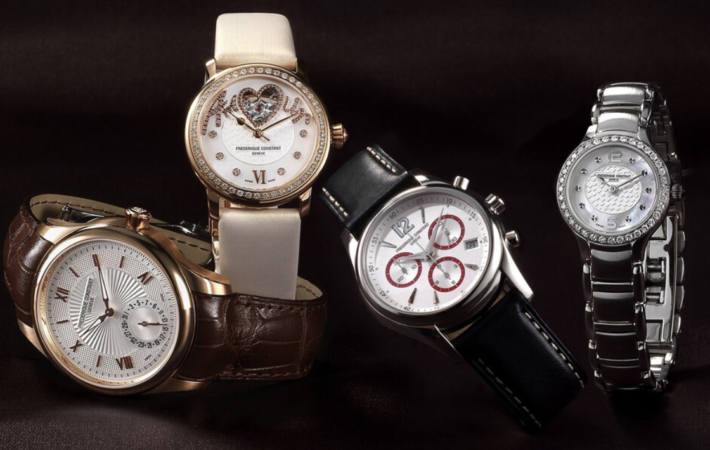The movement of a watch, often referred to as its “heart,” is what drives its functionality. Understanding the different types of watch movements—quartz, automatic, and mechanical—can help you make an informed choice when selecting the perfect timepiece. Each movement has unique characteristics, strengths, and aesthetic appeal. Let’s dive into the details.
1. Quartz Watches: Precision and Affordability
Quartz movements are powered by a battery and a quartz crystal, which work together to keep time with exceptional accuracy.
How Quartz Works:
- A small battery sends an electric current through the quartz crystal, causing it to vibrate.
- These vibrations regulate the movement of the watch hands.
Key Features of Quartz Watches:
- Accuracy: Quartz watches are highly precise, often losing or gaining only a few seconds per month.
- Low Maintenance: Requires battery replacement every 1–2 years.
- Affordability: Generally more budget-friendly than automatic or mechanical watches.
- Durability: Ideal for everyday wear and active lifestyles.
Best For:
Those who want a reliable, low-maintenance, and cost-effective timepiece.
2. Automatic Watches: The Art of Self-Winding
Automatic watches, also known as self-winding watches, use the motion of the wearer’s wrist to power the movement.
How Automatic Watches Work:
- A rotor inside the watch spins as the wearer moves, winding the mainspring.
- The energy stored in the mainspring powers the watch mechanism.
Key Features of Automatic Watches:
- No Battery Required: Powered by motion, though they may need manual winding if not worn regularly.
- Smooth Movement: The second hand glides smoothly, adding to its appeal.
- Craftsmanship: Often features intricate designs visible through a transparent case back.
- Moderate Maintenance: Requires periodic servicing every 3–5 years.
Best For:
Watch enthusiasts who appreciate the blend of functionality and craftsmanship in a timepiece.
3. Mechanical Watches: Timeless Craftsmanship
Mechanical watches are powered entirely by a manually wound mainspring and are the oldest type of watch movement.
How Mechanical Watches Work:
- The wearer manually winds the mainspring via the crown.
- The mainspring’s stored energy drives the watch’s gears and hands.
Key Features of Mechanical Watches:
- Hand-Winding Tradition: Requires regular winding, typically every 1–2 days.
- Craftsmanship: Represents centuries of horological artistry and expertise.
- Longevity: High-quality mechanical watches can last a lifetime with proper care.
- Smooth Second Hand: Similar to automatic watches, the second hand moves fluidly.
Best For:
Collectors and connoisseurs who value tradition, precision engineering, and a connection to watchmaking heritage.
4. Comparing the Movements: Which Is Right for You?
| Feature | Quartz | Automatic | Mechanical |
|---|---|---|---|
| Power Source | Battery | Wrist Movement | Manual Winding |
| Accuracy | Extremely High | Moderate | Moderate |
| Maintenance | Low | Periodic Servicing | Regular Winding |
| Cost | Affordable | Mid-to-High | High |
| Craftsmanship | Functional | Detailed | Highly Artistic |
| Longevity | Shorter Lifespan | Long-Lasting | Long-Lasting |
5. Factors to Consider When Choosing a Watch
- Lifestyle:
If you lead an active lifestyle, a durable quartz watch may suit you best. For formal or professional settings, consider the elegance of automatic or mechanical watches. - Budget:
Quartz watches are ideal for those on a budget, while automatic and mechanical watches are investments in craftsmanship and luxury. - Aesthetic Appeal:
Automatic and mechanical watches often feature intricate designs and visible movements, making them ideal for those who value artistry. - Convenience:
Quartz watches require minimal maintenance, whereas automatic and mechanical watches need winding and occasional servicing.
6. Why Movements Matter
The movement of a watch defines its character. Whether you prefer the precision of quartz, the self-sufficiency of automatic, or the craftsmanship of mechanical, the choice reflects your personal style and priorities.
Conclusion
Understanding the differences between quartz, automatic, and mechanical movements is crucial in selecting the right watch for your needs. Each type has its unique charm and functionality, catering to different lifestyles and preferences. Whether you’re drawn to the modern reliability of quartz or the timeless artistry of mechanical and automatic watches, your choice will be a testament to your taste and appreciation for fine timepieces.





Leave a comment
Your email address will not be published. Required fields are marked *